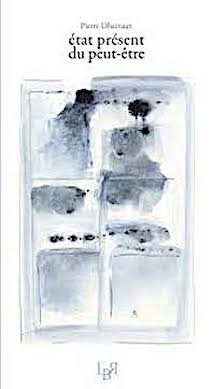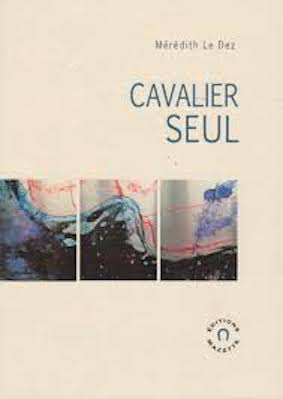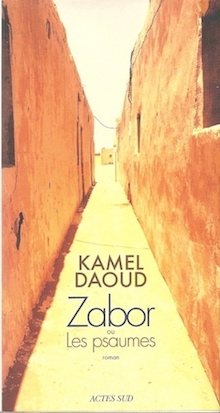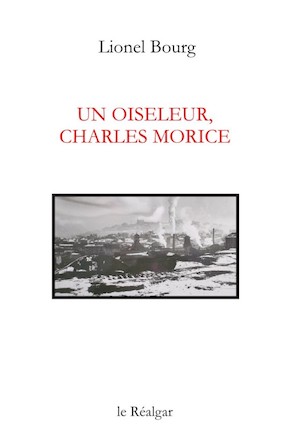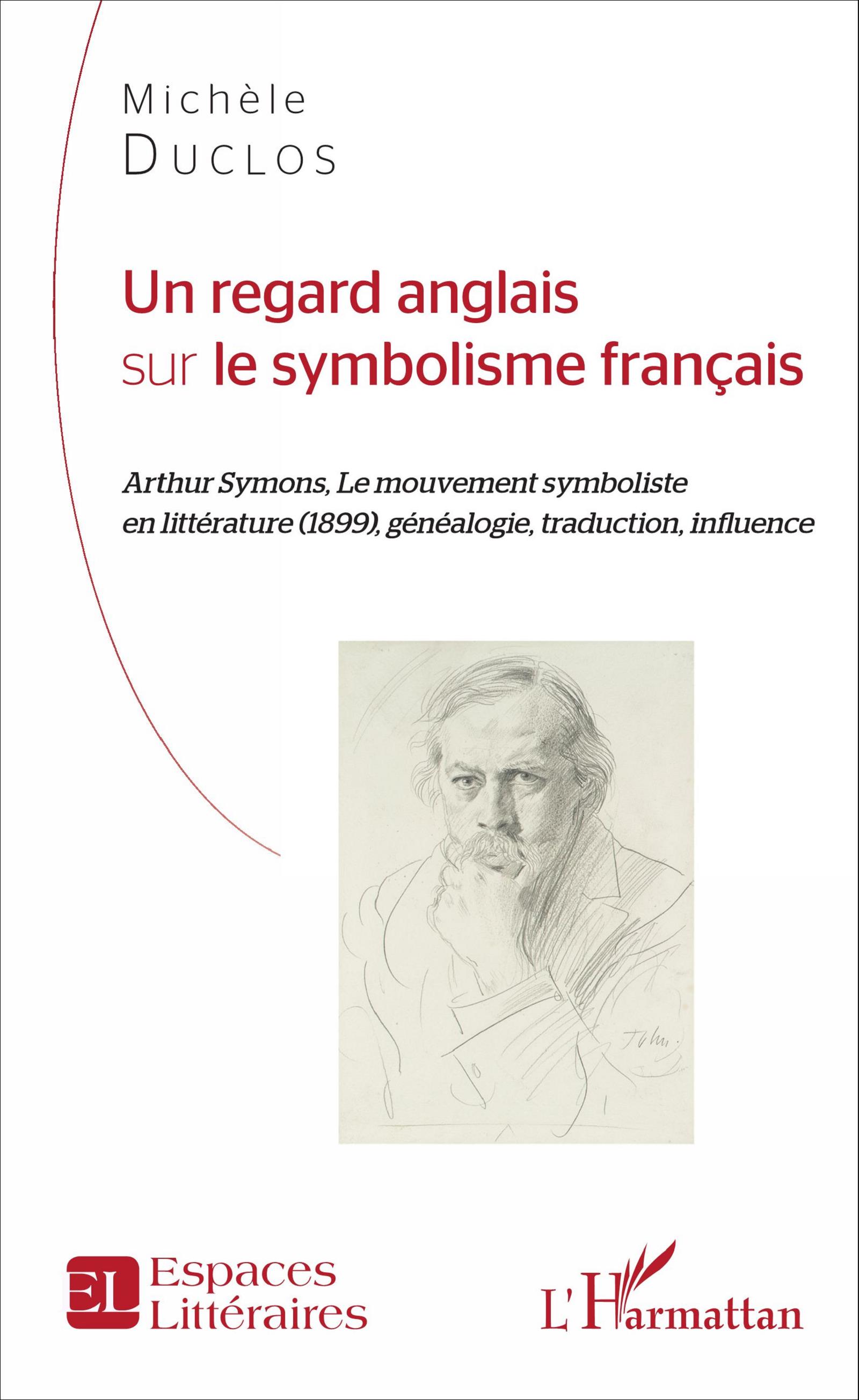Gerard Manley Hopkins was a man of intense passion and intense loves, and he can best be understood, perhaps, by probing his four great loves. But first it helps to know a bit about the man himself, this grand, musical poet and priest.
Gerard Hopkins was a short man–5’3” or so–with a high-pitched voice. He liked to hike and swim, enjoyed music, puns, and sketching, and once thought of becoming a painter. Nicknamed “Skin” at school and “Hop” among his fellow Jesuits, he rarely used his middle name “Manley,” was sometimes enthusiastic, sometimes melancholy, was unknown and largely unpublished when he died, and is now recognized as a major, experimental English poet.
Born in 1844 as the eldest child of an Anglican businessman, he grew up in the London suburb of Hampstead, did brilliantly at Oxford, became a Catholic in 1866, entered the Jesuit Order, and was ordained a priest in 1877. Fr. Hopkins worked in schools and parishes in England and Scotland, taught Classics at University College Dublin, and died in 1889 at the age of 44. Unpublished until 1918 and largely unknown until the second edition of his poems in 1930, he permanently changed the face of English poetry, influencing such major figures as W.H. Auden, Dylan Thomas, Sylvia Plath, and the Nobel Laureate Seamus Heaney. Who was this Gerard Hopkins? We can best discover him, I suggest, by probing his four great loves: nature, humans, God, and words.
I. Nature: Its Beauty and Shape
Hopkins loved nature’s beauty, and described it with rare skill and vivid images. At 19, he wrote in his Oxford diary of “moonlight hanging or dropping on treetops like blue cobweb.” At 21, he noted how “over the green water of the river…swallows [were] shooting, blue and purple above and shewing their amber-tinged breasts…, their flight unsteady with wagging wings.” Lying awake one night, he saw lightning “coloured violet…but afterwards sometimes yellow, sometimes red and blue.” He watched young lambs in springtime “toss and toss…as if it were the earth that flung them, not themselves.” Whether describing moonlight, birds, lightning, or cavorting lambs, Hopkins always sought the exact detail and the accurate, fresh word: “blue cobweb,” “wagging wings,” “toss and toss.” Loving nature, he wanted to make nature’s beauty permanent—at least in the words and images of his notebook.
He also loved the shapes of nature. Clouds were “repeatedly formed in horizontal ribs. At a distance their straightness of line was wonderful. In passing overhead…the splits [were] fretted with lacy curves and honeycomb work.” He noted the “curves and close folding” of tulip petals, and at his grandparents’ home in Croydon the lawn had “half-circle curves of the scythe in parallel ranks.” Even hailstones intrigued him, being “shaped like the cut of diamonds called brilliants.” Loving nature, Hopkins loved its very shapes–its uniqueness of form. This fascination with uniqueness, spurred by the philosophy of the medieval Duns Scotus, brought Hopkins to his famous concept of “inscape”—a word he created to express both an object’s external shape and its “inner core of individuality.” In poetry he worked to capture the inscapes of nature.
In 1877, for example, he expressed his love of nature, shape, and individuality in his rapturous sonnet “Spring”:
Nothing is so beautiful as Spring–
When weeds, in wheels, shoot long and lovely and lush;
Thrush’s eggs look little low heavens, and thrush
Through the echoing timber does so rinse and wring
The ear, it strikes like lightnings to hear him sing;
The glassy peartree leaves and blooms, they brush
The descending blue; that blue is all in a rush
With richness; the racing lambs too have fair their fling.
Notice how the tossing lambs of his journal reappear in the poem, as does his interest in the shapes of nature: “weeds, in wheels, shoot long and lovely and lush.”
Another poem, “The Starlight Night,” catches his breathless, childlike joy in discovering towns, castles, diamond-mines, even elves in the night sky:
Look at the stars! look, look up at the skies!
O look at all the fire-folk sitting in the air!
The bright bóroughs, the circle-citadels there!
Down in dim woods the diamond delves! the elves’-eyes!
Autumn evokes a similar delight in the poem “Hurrahing in Harvest”:
Summer énds now; now, bárbarous in béauty, the stóoks ríse
Around; up above, what wind-walks! what lovely behaviour
Of sílk-sack clóuds! has wilder, wilful-wávier
Méal-drift moulded ever and melted acróss skíes?
No wonder Hopkins is considered one of the finest nature-poets in English.
His famous poem “Pied Beauty” celebrates not only nature’s variety but also its peculiarities, as he contemplates a cow’s hairy flanks, a trout’s rosy spots, a chestnut cracked open by falling, and the angular fields of a Welsh valley:
Glóry be to God for dappled things–
For skies of couple-colour as a brinded cow;
For rose-moles all in stipple upon trout that swim;
Fresh-firecoal chestnut-fálls; fínches’ wings;
Lándscape plotted and pieced—fold, fallow, and plough.
“Lándscape plotted and pieced”: again he notes nature’s shapes—the plots into which farmland is divided, the contours of a field lying fallow, the straight rows made by a plough.
Loving nature’s beauty, Hopkins also grieves at the loss of this beauty. He is a major environmental poet, and his poem “Binsey Poplars” mourns the cutting of shade trees upriver from Oxford:
My aspens dear, whose airy cages quelled,
Quélled or quenched in leaves the leaping sun,
Áll félled, félled, are áll félled.…
O if we but knew what we do
When we delve or hew–
Hack and rack the growing green!
He also stresses nature’s beauty and permanence. After watching tossed clouds, dancing elm branches, tree-shadows on a white wall, and drying mud, Hopkins cries out, “Million-fuelèd, nature’s bonfire burns on.” For him, nature is a never-dying bonfire, always changing, ever brilliant, surpassingly beautiful.
II. Humans: Heroes, Plain People, and the Self
Hopkins’ second great love was for humans—men, women, and children. In life, he loved his family and had many friends, lay and Jesuit, and often ended his letters, “Your affectionate friend.” In poetry, he celebrates heroes and simple people, some brave to the point of death, others just laborers or soldiers or sailors, or generous children, or innocent youths.
The greatest hero of Hopkins’ poems—except for Christ—is not a hero but a heroine, the “Tall Nun” in his ode “The Wreck of the Deutschland.” Exiled from her native Germany by Bismarck’s Kulturkampf, she and four other Franciscan nuns were sailing to America in 1875 when, in a swirling snowstorm, their ship ran aground on a sandbar in the Thames estuary. Unaided for thirty hours, many passengers and crewmen perished from the cold or were washed overboard by fierce waves. Amid the tumult, the “Tall Nun” stood on a table in the ship’s cabin, thrust her head through a skylight, and kept crying out, “O Christ, Christ, come quickly.” Deeply moved, Hopkins began his first great poem, one of the finest odes in English, about the Tall Nun who recognized God in her suffering:
Ah! thére was a héart right!
There was single eye!
Réad the unshápeable shóck níght
And knew the who and the why.
She was “a líoness,” “a próphetess,” who found Christ even in the fury of a winter storm. Her reward was great: “for the pain, for the / Pátience” she was to be with “Jésu, héart’s líght, / Jésu, máid’s són,” for all eternity.
Other heroes are more common. One is a blacksmith, “Felix Randal,” a Liverpool parishioner to whom Hopkins ministered in his illness. Hopkins had watched his strong body weaken—a body once “big-bóned and hardy-handsome”—and memorializes him in a sonnet. In other poems Hopkins praises an altar boy’s generosity, a sailor’s heroism, a beggar’s cheerfulness, a bugler’s innocence, a ploughman’s physical grace, and a worried boy watching his younger brother in a school play. He praises a Welsh family for their kindness, and prays for a Lancashire couple marrying in th dull industrial town of Bedford Leigh. He celebrates his favorite saints: the Virgin Mary, St. Dorothea, St. Thecla, St. Winefred, St. Margaret Clitheroe, and his fellow Jesuits St. Francis Xavier and St. Alphonsus Rodriguez. He also celebrates his fellow Jesuits in a comic poem I discovered in London in 1998. Entitled “‘Consule Jones’” and written to a rollicking Welsh melody, the 48-line poem jokes about Hopkins’ fellow theologians at St. Beuno’s College in North Wales:
Murphy makes sermons so fierce and hell-fiery
Mothers miscarry and spinsters go mad.
Hayes pens his seven and twentieth diary,
Bodo’ does not, there’s no time to be had.
Lund, ever youthful, well vizor’d and turban’d,
Robs hives of that honey which we are to sip.…
Hopkins’ regard for children inspired one of his finest and most accessible poems, “Spring and Fall.” As autumn leaves fall, a young girl grieves over the loss of nature’s beauty. Naming her “Margaret” but stressing the last syllable—Margarét—Hopkins plays on the word’s root-meaning: the girl is a “margareta” or “pearl.” And as this pearl mourns for the death of nature, a greater sadness soon grows clear to the poet: lovely young Margarét is also mourning for herself. She too will die. “Spring and Fall” thus becomes a meditation on nature, childhood, growth, and death. It is one of Hopkins’ simplest, loveliest, saddest poems:
Spring and Fall:
to a young child
Márgarét, áre you gríeving
Over Goldengrove unleaving?
Léaves, líke the thíngs of mán, you
With your fresh thoughts care for, can you?
Áh! ás the héart grows ólder
It will come to such sights colder
By and by, nor spare a sigh
Though worlds of wanwood leafmeal lie;
And yet you will weep and know why.
Now no matter, child, the name:
Sórrow’s spríngs áre the sáme.
Nor mouth had, no nor mind, expressed
What héart héard of, ghóst guéssed:
It ís the blíght mán was bórn for,
It is Margaret you mourn for.
Like Margaret, Hopkins also suffered, and in Dublin he was depressed and feared madness, penning a sonnet that screams in pain:
No worst, there is none. Pitched past pitch of grief,
More pangs will, schooled at forepangs, wilder wring.
Comforter, where, where is your comforting?
Mary, mother of us, where is your relief?
My cries heave, herds-long; huddle in a main, a chief-
Woe, wórld sorrow; on an áge-old ánvil wínce and síng–
Then lull, then leave off. Fury had shrieked ‘No ling-
Ering! Let me be fell: force I must be brief.’
O the mind, mind has mountains; cliffs of fall
Frightful, sheer, no-man-fathomed. Hold them cheap
May who ne’er hung there. Nor does long our small
Durance deal with that steep or deep. Here! creep,
Wretch, under a comfort serves in a whirlwind: all
Life death does end and each day dies with sleep.
In another sonnet he describes himself as “gall” and “heartburn,” bitter-tasting, no better than the damned in hell. He knew well that a human, so lovable, is also so fragile, so able to suffer.
More commonly, though, he celebrates the unique selfhood of every human. Fascinated by self, he turns to distinctive images of camphor, ale, and alum, of a plucked violin, a swinging bell, and a flame-colored kingfisher, to describe the self’s uniqueness. And he includes himself: “I find myself more important to myself than anything I see.…Nothing else in nature comes near…this selfbeing of my own.” His most eloquent poem about selfhood is his 1877 sonnet “As kingfishers catch fire”:
Each mortal thing does one thing and the same:
Deals out that being indoors each one dwells;
Selves–goes its self; myself it speaks and spells.
Yet all humans, even such glorious, unique selves, will perish and die, and only his third great love—God—can offer full hope.
III. Hopkins and God
In God, Hopkins finds the best hope for humans. God is the source of nature’s beauty, a creator who so loves the world that he is always present and active in his world, working in his creation and giving eternal life. Hopkins’ most memorable poem about God is “The Wreck of the Deutschland,” which begins with a divine portrait that is cosmic, powerful, compelling:
Thou mastering me
God! giver of breath and bread;
Wórld’s stránd, swáy of the séa;
Lord of living and dead.…
Hopkins then grows personal, recalling his own terror before God, most likely when deciding to become a Catholic:
Thou hast bóund bónes and véins in me, fástened me flésh,
And áfter it álmost únmade, what with dréad,
Thy doing: and dost thou touch me afresh?
Óver agáin I féel thy fínger and fínd thée.
I did say yes
O at líghtning and láshed ród;
Thou heardst me, truer than tongue, confess
Thy terror, O Christ, O God.…
In such terror, Hopkins finds a fearsome God of “dréad” and “láshed ród” who wants to “master” Hopkins. But even in terror Hopkins remembers another aspect of God, the Christ of the Eucharist, and flees to him in relief:
…where, where was a, where was a place?–
I whirled out wings that spell
And fled with a fling of the heart to the heart of the
Host.
Hopkins flees to the Eucharistic Christ as his savior and his love. In various poems he sees Christ as “heavenly Bread” and the “sweet Vintage of our Lord”; as an Anglo-Saxon “hero of Calvary,” “hero of us,” “holiest, loveliest, bravest…Hero”; as “Our passion-plungèd giant risen; as “king,” “prince,” “high-priest,” “God-made-flesh”; as “spouse” and “Saviour”; as “immortal diamond”; even, in a poem about a soldier’s First Communion, as a whimsical “royal ration” and “treat” “from cupboard fetched”—as if the Eucharist were stored in a kitchen breadbox!
For Hopkins, God and Christ are always present and active in the world. He uses a metaphor from electricity: “The world is charged wíth the grándeur of God, / It will flame out, like shining from shook foil.” As sheet-metal flashes in the sun, so God’s presence flames out in all creation, almost forcing our eyes to recognize him. Even the wild behavior of clouds raises his mind to God: “I wálk, I líft up, Í lift úp heart, éyes, / Down all that glory in the heavens to glean our Saviour.”
Hopkins also sees God living and acting in humans. In the sonnet “As kingfishers catch fire,” the just man
Ácts in God’s eye what in God’s eye he is–
Chríst. For Christ plays in ten thousand places,
Lovely in limbs, and lovely in eyes not his
To the Father through the features of men’s faces.
The metaphor here is of an actor on stage: even more than an actor is Hamlet, or is Lear, or is the Fool, Christ himself is acting in, is working in you and me and every human.
Hopkins’ lovable God, finally, is present even in absence, pain, and death. In his “Terrible Sonnets” of 1885, Hopkins feels that God is absent, yet still recognizes him and complains to him: “Comforter, where, where is your comforting?” or, “…my lament / Is cries countless, cries like dead letters sent / To dearest him that lives alas! away.” Yet Hopkins later looks back on his pain and sees that even then God has been actively present with him: “That níght, that yéar / Of now done darkness I wretch lay wrestling with (my God!) my God.” Whether present or absent, God is Hopkins’ firm hope and firm love, and Hopkins ultimately is part of Christ:
In a flash, at a trumpet crash,
I am all at once what Christ is, since he was what I am, and
Thís Jack, jóke, poor pótsherd, patch, matchwood, immortal
diamond,
Is immortal diamond.
IV. A Poet’s Delight: Words, Sounds, Rhymes, Rhythms
But the world knows Gerard Hopkins primarily as a poet, and I now turn to him as poet: as a lover of words—of their sounds and rhymes and rhythms. In truth, perhaps Hopkins’ most obvious love is his love for words.
Even as a teenager, Hopkins loved words. His secondary-school poems show an uncontrolled, adolescent fascination with rhythm and alliteration: “Rowing, I reach’d a rock,” “the dainty-delicate fretted fringe of fingers.” At Oxford and as a Jesuit, Hopkins was fascinated by the meanings, derivations, histories, sounds, and rhythm of words, as when a Jesuit from Lancashire called a grindstone a “grindlestone.” In his journal he notes Irish expressions, Spanish accents, and an old lady who still speaks the Cornish language. He corresponds with a friend about Semitic and Egyptian influences on Greek, and enjoys foreign accents, once noting, with humor, how “an Italian preaching in England upon Faith said ‘He zat has no face cannot be shaved.’”
Hopkins had a lifelong love of words and of their varieties. In his poems he sometimes chooses the uncommon word for stunning effect: “the móth-soft Mílky Wáy” or “my cries heave, herds-long.” Sometimes the unexpected common word shocks: “I am gall, I am heartburn.” He incongruously mixes textures and temperatures, combining hard with soft and cold with hot: in “The Wreck of the Deutschland,” wintry waves are “cobbled foam-fleece” and snow is “Wíry and white-fíery.” He invents words with abandon: “Goldengrove,” “Betweenpie,” “fallowbootfellow,” “onewhere,” “Churlsgrace,” “Amansstrength,” “shípwrack,” “downdolfinry.” He creates hyphenated combinations that would puzzle a lexicographer: “wimpledwater-dimpled,” “wíndpuff-bónnet of fáwn-fróth,” “down-dugged ground-hugged grey,” and his famous “dapple-dáwn-drawn Falcon.” Like an alchemist he transmutes parts of speech, turning nouns into verbs (“Let him éaster in us,” “the just man justices”), participles into nouns (“leaves me a lonely began”), and nouns into adjectives (“a madrigal start”). To strengthen a line, he omits relative pronouns: “O Hero savest” instead of “O Hero [who] savest.” Strange verb forms delight him: “Have fáir fállen.” He puts exclamations into mid-sentence: “I wretch lay wrestling with (my God!) my God.” In one poem he mixes homely dialect words (“Squandering,” “Shive”), his own compounds (“rutpeel,” “fíredint”), formal words (“resíduary”), and the basic, undignified “worm.” Rejecting rules, he forces words to be lively and colorful, so as to catch the motion and verve and variety—and uniqueness—of life.
His rhymes are likewise wild. To make a rhyme, he freely splits words between lines (“king- / dom,” “ling- / Ering”), breaks a contraction (“smile / ‘S not wrung”), and carries a word’s final letter into the next line (“wear- / y”). Tradition is unimportant: Hopkins, ever self-confident, prizes original word-music. Refusing to be bound by mechanics—iambic pentameter, for example—he invents “sprung rhythm” for freshness and strength. Thus, in “Binsey Poplars” (the poem about trees which had been cut down), instead of normal iambic pentameter which requires ten syllables for five stresses (_’_’_’_’_’), Hopkins omits unimportant syllables to make a line of only six syllables with five stresses: “Áll félled, félled, are áll félled” (’’’_’’). The line is stronger, more telling—and more like the sound of an axe—because Hopkins uses what he calls “sprung rhythm” which makes a line “spring”—leap—from stress to stress, ignoring the unstressed syllables. He even gives careful directions on how to perform—not “read” but “perform”—his poems. How he loved his words! How he loved their sounds and rhymes and rhythms!
*****
Such, then, was Gerard Hopkins: lover of nature, of people, of God, and of words. This funny, short little poet with a high-pitched voice was a playful man, a good friend, a fine priest, a so-so teacher, a poet who liked science and despised ugliness. Often eccentric, he was a political conservative with a strong social conscience. He felt grand elation and deep depression. He was holy and loved sense-experience. He was, in short, a consummate individualist. And a rare, truly splendid poet.
It is good to turn one last time to a poem—to the sonnet “God’s Grandeur,” where with wonderful sounds and images Gerard Hopkins proclaims God’s presence in the world while asking why men ignore God and damage his world. Yet however much humans damage his world, Hopkins knows that God’s lovely nature still remains fresh and, as the rising sun spreads its first light-rays like the wings of a bird, he imagines how God broods over the world with love and is the very rays of light:
The world is charged wíth the grándeur of God.
It will flame out, like shining from shook foil;
It gathers to a greatness, like the ooze of oil
Crushed. Why do men then now not reck his rod?
Génerátions have trod, have trod, have trod;
And all is seared with trade; bleared, smeared with toil;
And wears man’s smudge and shares man’s smell: the soil
Is bare now, nor can foot feel, being shod.
Ánd, for all this, náture is never spent;
There lives the dearest freshness deep down things;
And though the last lights off the black West went
Oh, morning, at the brown brink eastward, springs–
Because the Holy Ghost óver the bent
World broods with warm breast and with ah! bright wings.
That is how Hopkins loves nature and humans and God and words. That is the passion of a poet and a lover.
Saint Joseph’s University
Philadelphia, Pennsylvania


